Submitted by WA Contents
Asif Khan completes super-black pavilion at Winter Olympics in South Korea
Korea, South Architecture News - Feb 14, 2018 - 00:44 19801 views
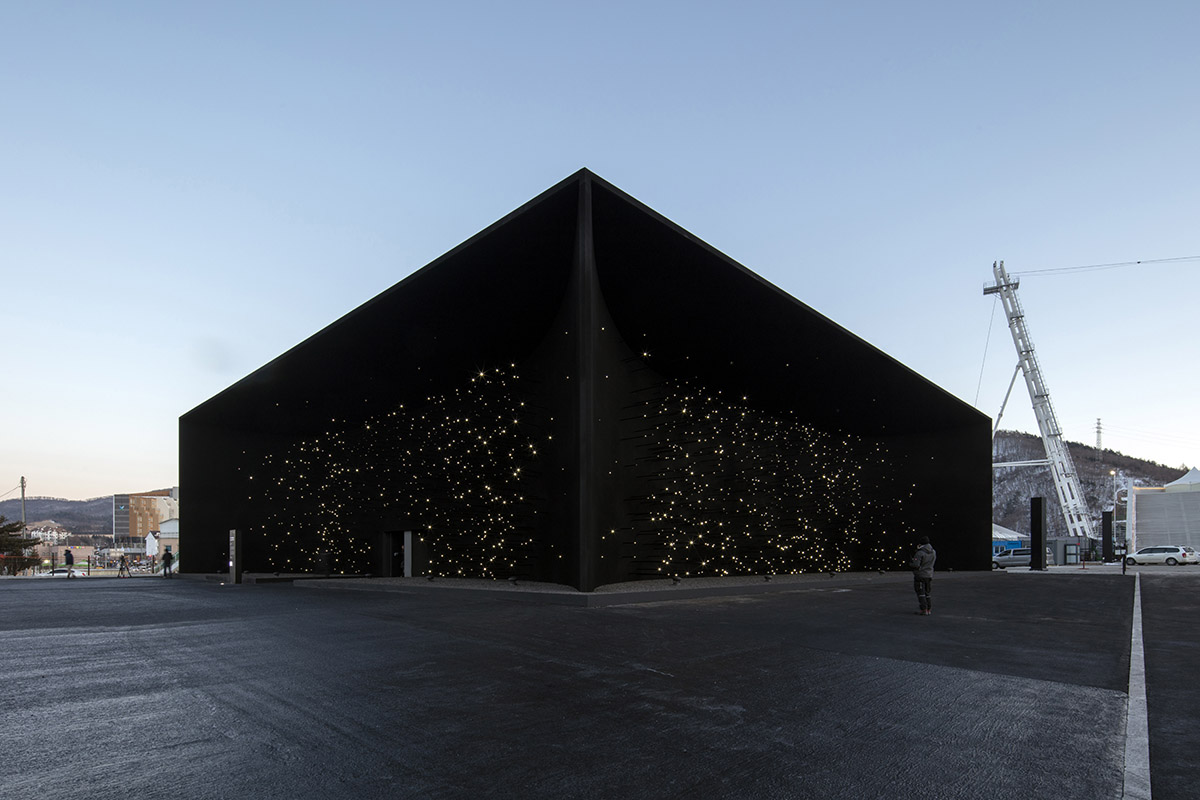
London-based architecture practice Asif Khan has completed "the world's darkest pavilion" at the PyeongChang Winter Olympics 2018 in South Korea. A super-black pavilion is entirely coated in Vantablack VBx2 - a large scale spray application implemented on the surfaces to illuminate light as much as possible on a large scale.
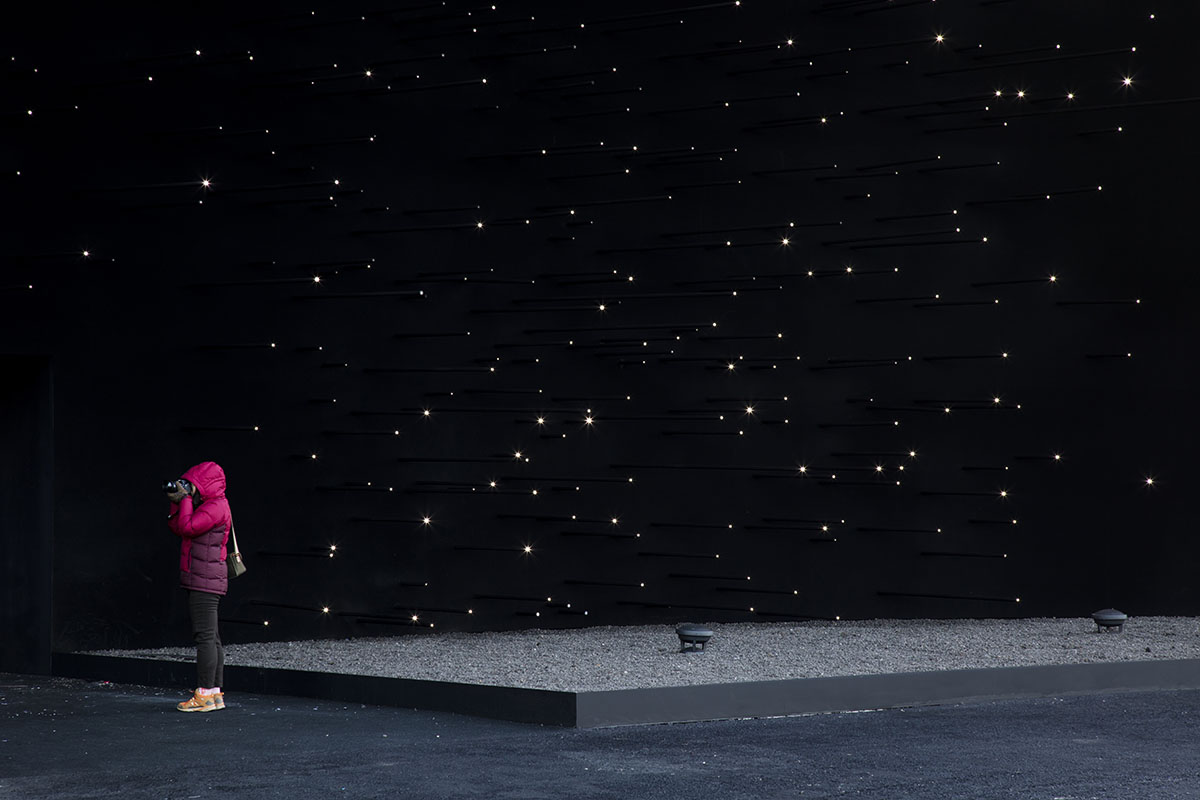
Named Hyundai Pavilion, described as the "darkest building on earth", is illuminated by a field of stars that appear to float in mid-air. Commissioned by Hyundai Motor, the one-story building was designed as part of its art global mobility initiative. The pavilion opened on February 9, 2018 at the PyeongChang Winter Olympics, which will continue until February 25, 2018.
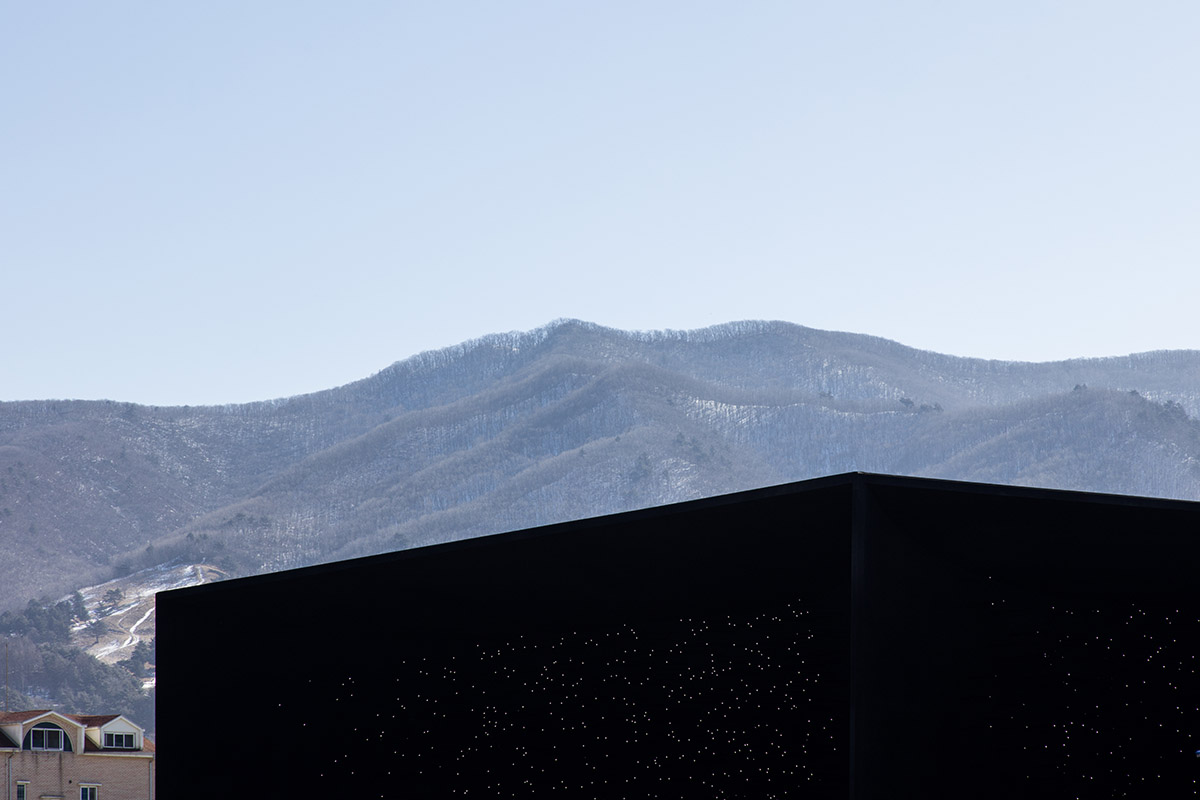
Reaching at 10-metre-high with parabolic facades, the building's skin is coated with a super black material: Vantablack VBx2, a derivative of the original Vantablack, making it the world’s largest continuous nanostructure.

"The matt black material is able to absorb 99% of the light that hits its surface, diminishing its three dimensionality and creating the illusion of a startling black void in broad daylight," said the studio.
"The facades of the pavilion are punctuated by thousands of tiny white lights which, during the day, simulate the view into space from that point on earth."

Encompassing a total of 35m x 35m area from inside, Khan has also designed a vast "water room" - a multi-sensory hydrophobic water installation which emits 25,000 singular water droplets every minute.
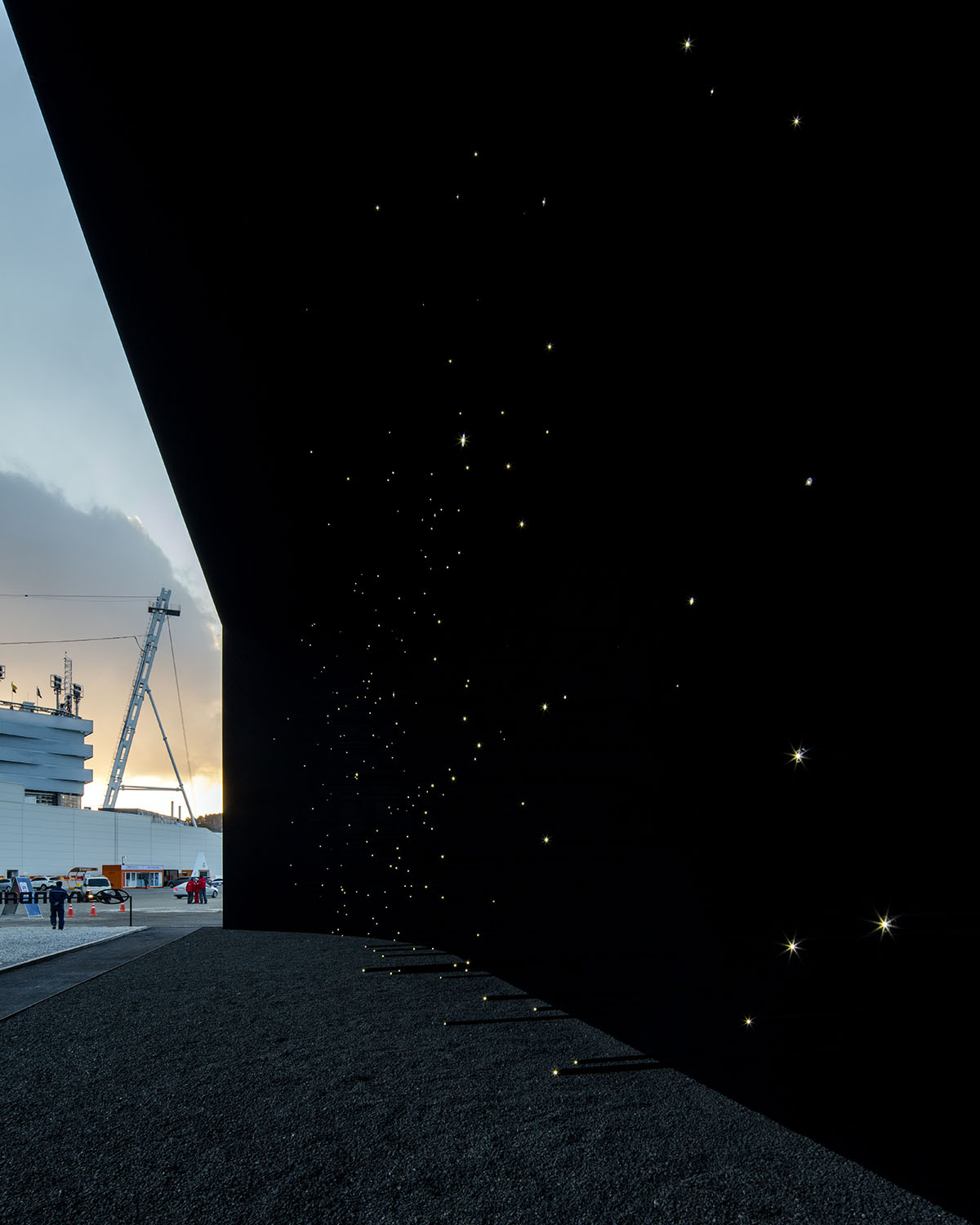
Visitor intercat with a series of haptic sensors creates new rhythms as droplets continually collide, join, and split across the water landscape, which appears like a city viewed from space. These flows of individual droplets collect, grow and build into a ‘lake’ which drains and reappears in the space of minutes.
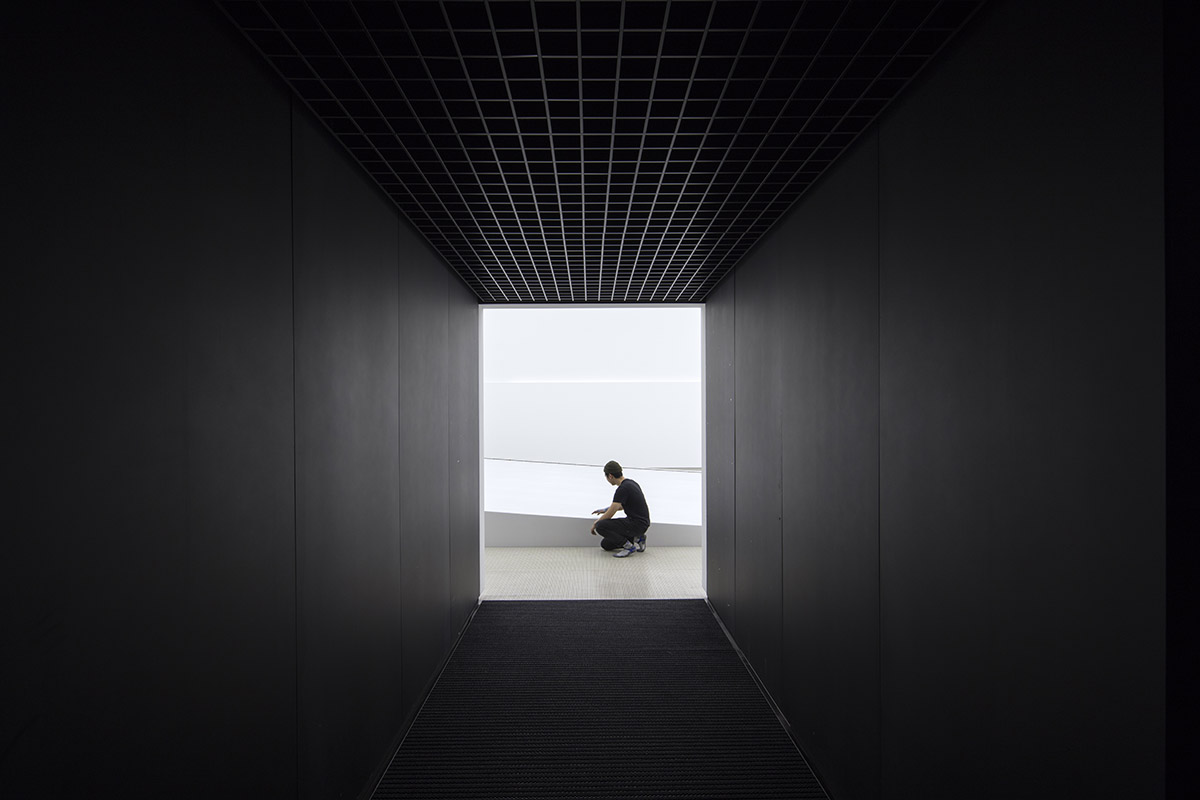
“From a distance the structure has the appearance of a window looking into the depths of outer space. As you approach it, this impression grows to fill your entire field of view. So on entering the building, it feels as though you are being absorbed into a cloud of blackness," said Asif Khan.
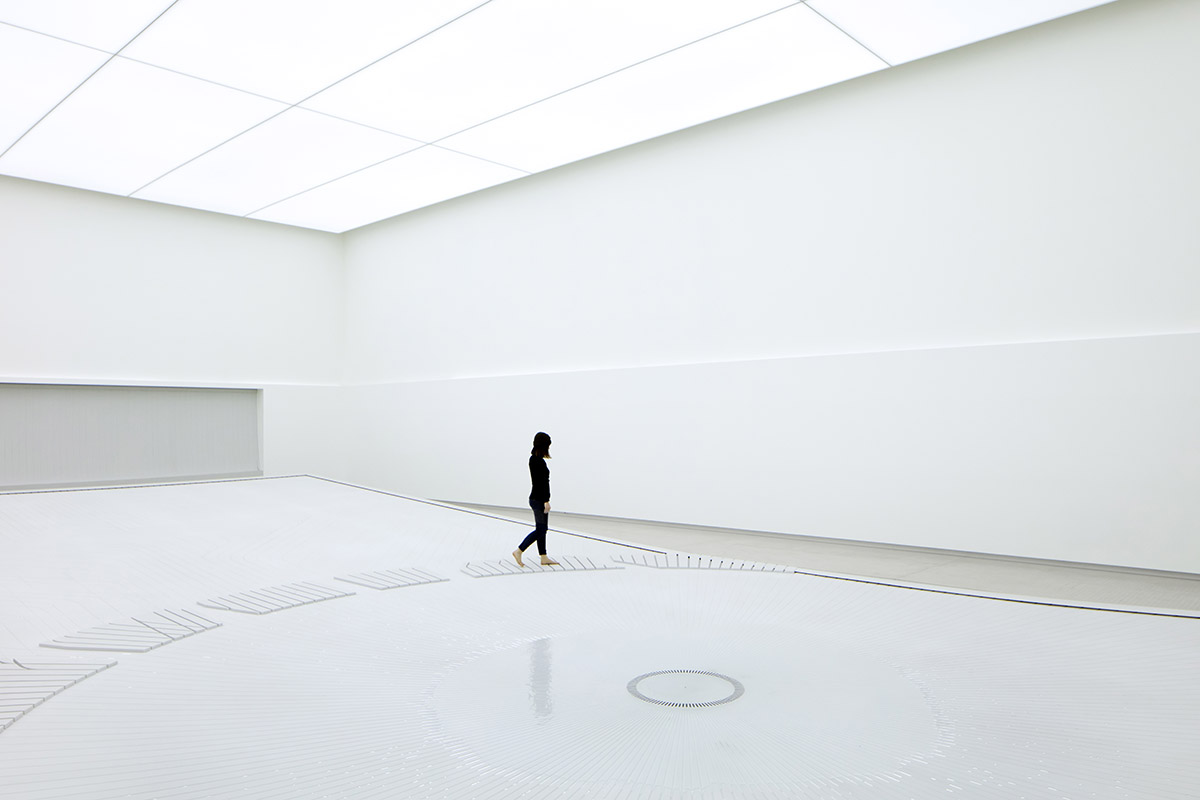
"The water installation visitors discover inside is brightly lit in white. As your eyes adjust, you feel for a moment that the tiny water drops are at the scale of the stars," he added.
"A water droplet is a size every visitor is familiar with. In the project I wanted to move from the scale of the cosmos to the scale of water droplets in a few steps. The droplets contain the same hydrogen from the beginning of the universe as the stars."

With Hyundai's pioneering technology for the world’s first Hydrogen Fuel Cell vehicle, the company envisions a future society where mobility is both sustainable and accessible.
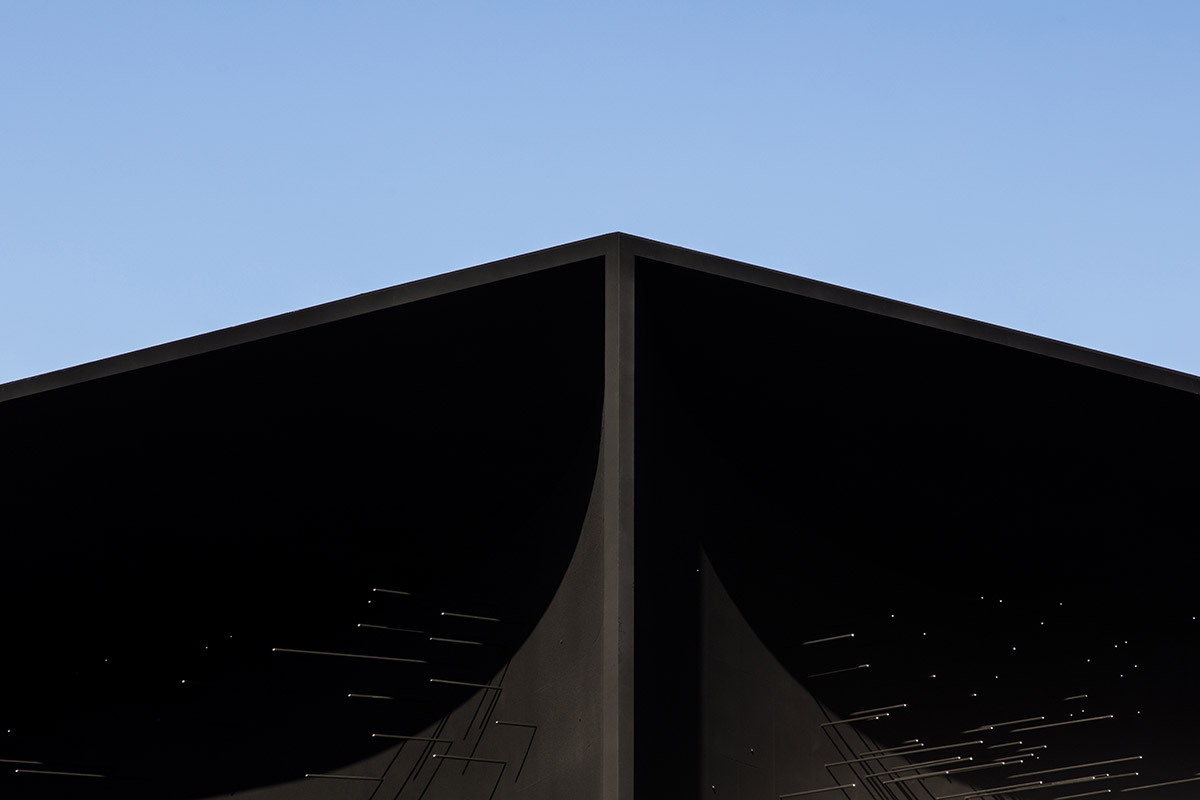
The black façade of the pavilion represents the Universe – the origin of Hydrogen – and the interactive water droplets inside the building are inspired by individual Hydro- gen molecules and the technology behind Hyundai’s new Hydrogen Fuel Cell vehicle.
Asif Khan has worked with Hyundai to encapsulate its vision for the future of motoring through architecture, design and visitor experience.
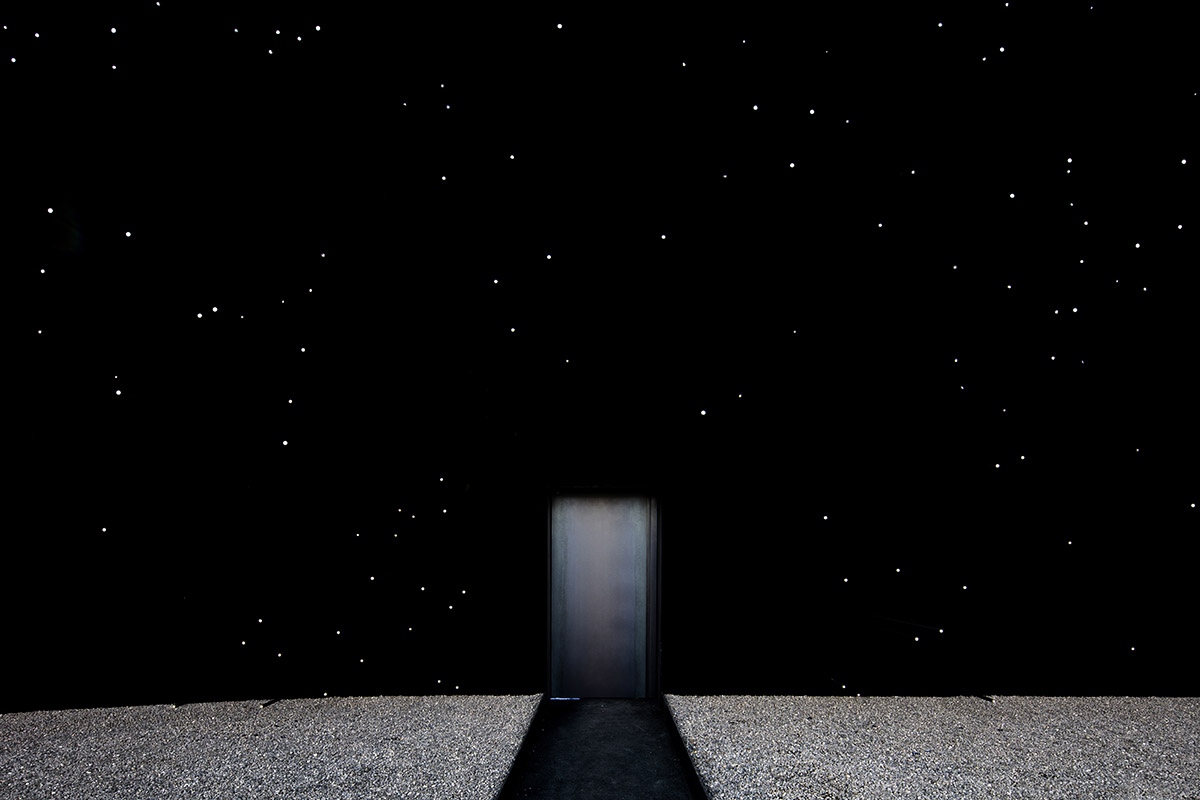
Asif Khan has been working with the manufacturers of Vantablack since 2013 and proposed its use in his shortlisted proposal for the UK Pavilion at Milan Expo 2015.
Asif Khan’s super-black building at the 2018 Winter Olympics follows his designs for Coca-Cola’s landmark pavilion at the 2012 London Olympic Games and the MegaFaces pavilion at the 2014 Sochi Winter Olympics.
Project facts
Project name: Hyundai Pavilion
Client: Hyundai Motor Company
Design: Asif Khan
Main Contractor: Hyundai Engineering
Interactive Engineer: iart
Facade coating: Surrey NanoSystems Corian
Fabrication: Cutting Edge
Structural Engineer: AKTII
Environmental Engineer: Atelier Ten
Environmental Sound: Why Do Birds?
Interior contractor: GL
Local Architect: Unsangdong Architects
Agency: Innocean Worldwide
All images © Luke Hayes
> via Asif Khan
